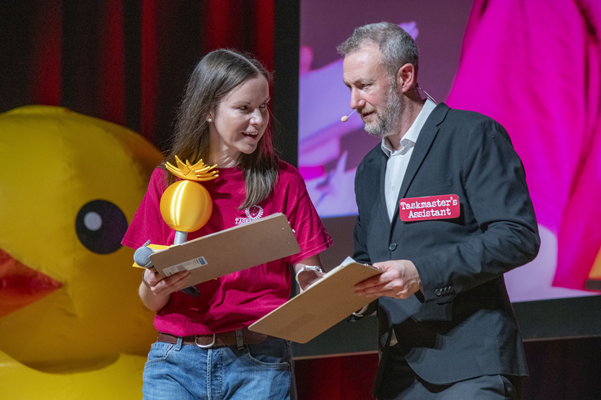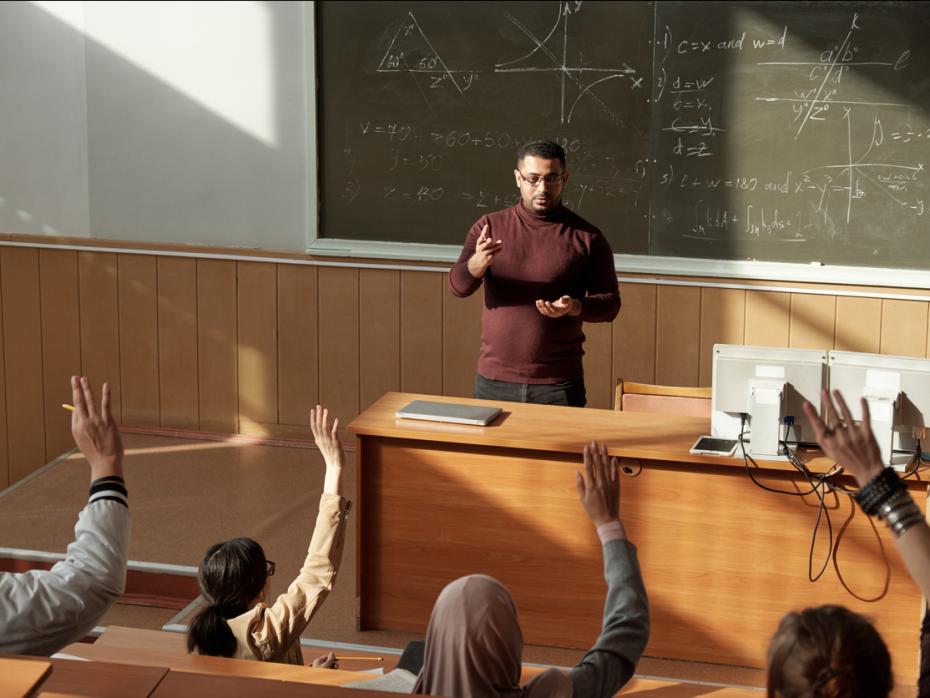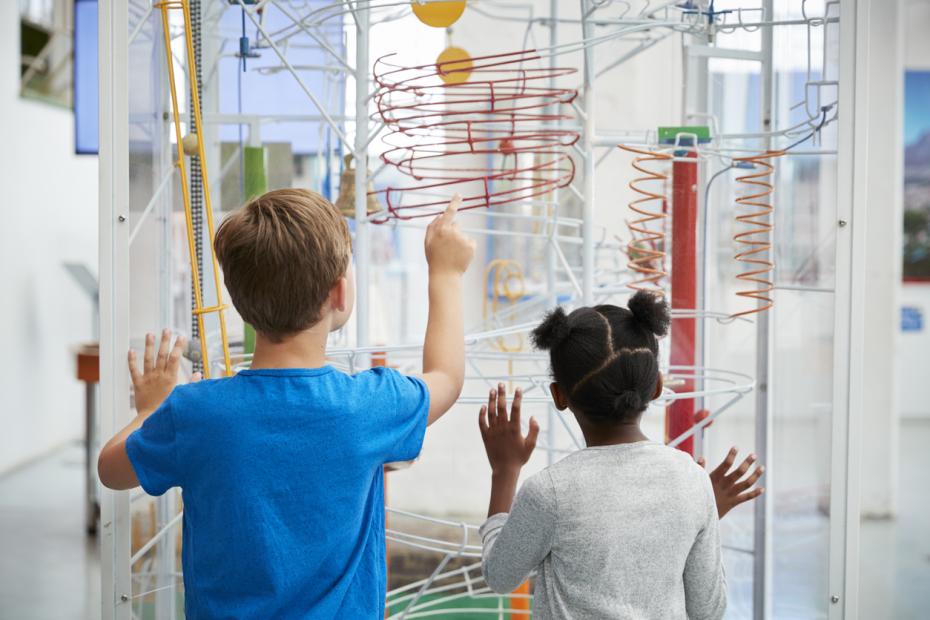When academia is portrayed on screen, it tends towards resplendent architecture, imposing library bookshelves packed with dusty volumes from the turn of the 20th century, and academics sporting archetypal tweed blazers with leather elbow patches. Now, setting aside for a moment the fact that Ali does in fact own a tweed blazer (prompting her five-year-old daughter to ask, “Mummy, why are you wearing a handsome man’s jacket?”), there is much hard work being done in the academy to shatter the illusion of academics in their figurative ivory tower.
Much of this outreach seeks to encourage children from schools in less-advantaged areas to connect with staff and students from the universities on their doorstep. Anecdotally, staff from traditionally elite institutions have advised that it would be difficult for them to work with their local primary schools because, and we quote one university directly here, “they don’t like us”. This, however, is exactly why schools’ outreach initiatives can play such an important role in building, or indeed repairing, connections between universities and the schools that share their communities.
School Tasking – an outreach initiative based on the jovial and nonsensical TV show, Taskmaster (where comedians compete in tasks to win points from the all-powerful Taskmaster) – has a proven track record for early intervention with primary schools that not only successfully develops key skills, such as reasoning and critical thinking, but is genuinely enjoyable for children. A significant aspect of this enjoyment appears to be that the participating 9–10-year-olds develop meaningful relationships with the staff and students running the project at 30 (and counting) higher education institutions across the UK and Ireland. This can be attributed in large part to the fact that, in this context, academia is not dusty books and tweed blazers; instead, academia is Play-Doh, paper planes, needle-felted miniature Alexes in lock boxes and snails in bottles of rice. In other words, academia becomes playful in a way that is fundamentally at odds with its ivory tower reputation.
- What next for EDI? Protecting equality of opportunity in HE
- On the neurodivergent campus, language matters
- School visits are a triple-win for academics, schools and society
Ultimately, breaking down barriers by allowing ourselves to be playful can be a reliable means of engaging with the public, whether within outreach for children or through other initiatives aimed at making knowledge in the higher education sector accessible beyond the four walls of the university. Some reading this article will delight in the prospect of such academic levity. Others will recoil at the very notion. And this is an important distinction to recognise. Being playful is not something that comes naturally to everyone and, as a sector, we need to accept that this is OK. Just as not all comedians are the right fit for Taskmaster, not all academics will want to, or find it naturally easy to, translate their work into something that is dynamic and accessible for a non-academic audience. And ultimately, if poorly executed, outreach – particularly when working with younger audiences – risks reinforcing, rather than deconstructing, the notion of the figurative ivory tower.
If outreach is within an academic’s wheelhouse, then, what lessons can be learned from the success of School Tasking?
• First, academics should have it in their nature to not take themselves too seriously. They must be able to laugh at themselves, to take criticism well, to be playful, and to engage with ideas that differ from their own.
• Sessions can be set up to encourage creative thinking and discussion around the most playful aspects of one’s field. Not all disciplines can argue about whether Jaffa Cakes are cakes or biscuits,* but all disciplines will have interesting, curious or contentious topics of debate and, if used well, these can provide a gateway to genuine engagement from younger audiences.
• Linking outreach to popular culture, such as games or television programmes, can encourage children to see relevance where they may otherwise struggle. In law, Taskmaster encourages children to consider the importance of language and wording, with the supportively competitive nature of the format ensuring that all children have the chance to contribute meaningfully to tasks. Different entertainment formats will resonate more with other disciplines, but there will inevitably always be a suitable connection to popular culture to be found.
• Finally, and this is perhaps relevant principally to large collaborative projects like School Tasking, but listening to children, university students and collaborators at other institutions to continuously tweak project activities and materials is imperative to successful outreach. Only through genuine collaboration will a project evolve into the best, and often the most playful, version of itself.
Outreach that is playful and accessible has the potential to ensure that universities are seen not as elite, snobbish institutions seeking to circulate knowledge only among others in the academy, but as wellsprings of innovative, groundbreaking research that is meaningful, accessible and interesting to the communities on their doorstep.
Comedians on Taskmaster throw themselves into the most nonsensical of tasks with gusto. They inevitably end up saying ridiculous things, failing to follow simple instructions, intentionally looking as foolish as possible, and – on occasion – losing their patience with Alex, themselves, or their fellow team members. Yet, the public embraces the failures on the show as much as, if not more than, they do the successes.
If universities can channel even just an ounce of this self-deprecating joy through outreach, then the public may just end up embracing them to almost the same extent as comedian John Kearns with his average-sized rubber ducks from the pharmacy.**
*We would like it to be noted, for the record, that we do not accept that Jaffa Cakes are cakes. Alex doesn’t even really like cake but is partial to a Jaffa Cake. Cold, hard evidence right there that they are, in fact, biscuits. Richard Osman agrees with us so we must be right.
** That reference is one for the Taskmaster fans and will delightfully baffle everyone else.
Ali Struthers is a reader at Warwick Law School and Alex Horne is the star and creator of Taskmaster. The University of Warwick was shortlisted in the Widening Participation or Outreach Initiative of the Year category in the 2025 THE Awards. A full list of nominees can be found here.




comment